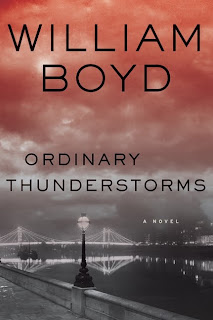David Grossman
David Grossman was born in Jerusalem. He is the author of numerous works of fiction, nonfiction, and children’s literature. His work has appeared in The New Yorker and has been translated into thirty-six languages around the world. He is the recipient of many prizes, including the French Chevalier de l’Ordre des Arts et des Lettres, the Buxtehuder Bulle in Germany, Rome’s Premio per la Pace e l’Azione Umitaria, the Premio Ischia—International Award for Journalism, Israel’s Emet Prize, and the Albatross Prize given by the Günter Grass Foundation.
From Grossman's Q & A with the Christian Science Monitor's Marjorie Kehe about his novel, To the End of the Land:
Q. You chose a female protagonist for your novel – a soldier's mother – even though you are a soldier's father and it might have seemed more natural for you to write from a man's point of view. Why did you create Ora?--Marshal Zeringue
A. I intuitively chose a woman because I think the relations between a mother and a child are more primal. And I say this as a very “motherly” kind of father. I’ve been involved very much in the life of my children from the very beginning. From the moment our oldest son Jonathan was born I felt it was a privilege to touch life through him and through my parenthood, my fatherhood.
Nevertheless, I know myself that the compact between my wife and him is more primal.This book deals so much with the everyday act of creating a human being in this life, in this world. It felt more natural to me to tell the story from Ora’s point of view.
And another thing: I thought that the woman will be less collaborative with the big system of the government, the army, the war. These are systems that were created by men and they reward men more. Those systems in a way are more boys’ games. It’s more likely that a woman will escape. A woman will not feel obliged to honor this awful deal that we make with the system when we send our son to the army and then wait for them to tell us what happens to him. I just knew this is how it would be.
Q. One of the most poignant things about "To the End of the Land" is the way that you interweave lovely scenes of family life with terrible moments of conflict. It raises the question: Can normal family life continue in a country torn by this kind of struggle? Or perhaps a better question is, does normal family life really exist under such circumstances – or is it always in some way tainted by them?
A. Both questions are right. The answer to both is...[read on]





























